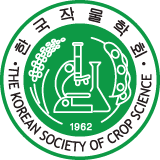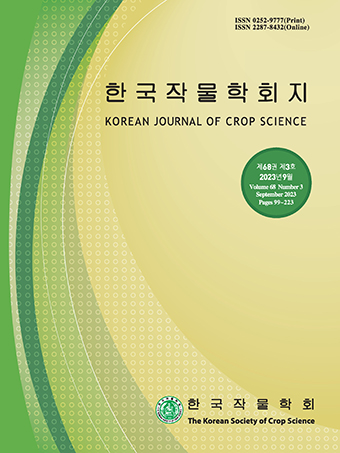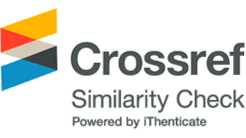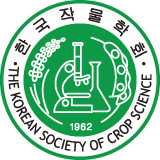Original Research Article
Abstract
References
Information
Arabbeigi, M., A. Arzani, M. M. Majidi, R. Kiani, B. E. S. Tabatabaei, and F. Habibi. 2014. Salinity tolerance of Aegilops cylindrica genotypes collected from hyper-saline shores of Uremia Salt Lake using physiological traits and SSR markers. Acta Physiologiae Plantarum 36 : 2243-2251.
10.1007/s11738-014-1602-0Brini, F., I. Amara, K. Feki, M. Hanin, H. Khoudi, and K. Masmoudi. 2009. Physiological and molecular analyses of seedlings of two Tunisian durum wheat (Triticum turgidum L. subsp Durum [Desf.]) varieties showing contrasting tolerance to salt stress. Acta Physiologiae Plantarum 31 : 145-154.
10.1007/s11738-008-0215-xHoque, M. A., E. Okuma, M. N. A. Banu, Y. Nakamura, Y. Shimoishi, and Y. Murata. 2007. Exogenous proline mitigates the detrimental effects of salt stress more than exogenous betaine by increasing antioxidant enzyme activities. Journal of Plant Physiology 164 : 553-561.
10.1016/j.jplph.2006.03.01016650912- Publisher :The Korean Society of Crop Science
- Publisher(Ko) :한국작물학회
- Journal Title :The Korean Journal of Crop Science
- Journal Title(Ko) :한국작물학회지
- Volume : 63
- No :4
- Pages :314-321
- Received Date : 2018-09-08
- Revised Date : 2018-10-01
- Accepted Date : 2018-10-02
- DOI :https://doi.org/10.7740/kjcs.2018.63.4.314




 The Korean Journal of Crop Science
The Korean Journal of Crop Science








